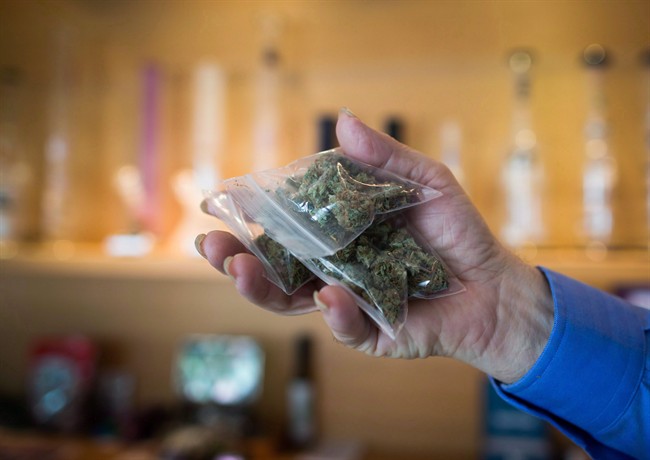As Justin Trudeau’s Liberals prepare to tackle the politics of legalizing weed, one challenge they’ll face is how to crack down on those who light-up before getting behind the wheel.

Clive Weighill, president of the Canadian Association of Chiefs of Police, said he’s spoken with police in the U.S. where marijuana has been legalized.
“We have talked to our counterparts in Colorado, and this is very preliminary, but they have seen an increase of impaired driving with marijuana use,” he said. “But it’s so preliminary yet. It could be that the police are looking for it a bit more because it’s legalized.”
Trudeau hasn’t revealed exactly how he plans to fulfill his election promise and it’s not clear whether Parliament would limit how much someone could smoke before driving. But looking at how states like Colorado and Washington deal with drivers who’ve smoked marijuana could provide a blueprint.
READ MORE: Bernie Sanders says he would legalize pot if elected president
One problem: police can’t easily test a driver suspected of being high.
“We don’t have a current instrument recognized by the courts to quantify the amount of marijuana in someone’s blood system if we suspect they are impaired,” said Weighill. “We have to go by the symptoms. We use a drug recognition system much like it used to be before we had breathalyzers and intoxilyzers.”
- Canadian man dies during Texas Ironman event. His widow wants answers as to why
- ‘Sciatica was gone’: hospital performs robot-assisted spinal surgery in Canadian first
- Honda’s $15B Ontario EV plant marks ‘historic day,’ Trudeau says
- Several baby products have been recalled by Health Canada. Here’s the list
Washington limits the amount of active THC, the chemical in pot that makes you high, in a driver’s blood at a maximum of five nanograms per millilitre of blood. Officials there believe it to be equivalent to a blood alcohol level of 0.08.
A similar law was put into place in Colorado, which also legalized marijuana, but to enforce it officers need to order a blood test.
READ MORE: Canada captures U.S. cannabis investment
Weighill, who is also Saskatoon’s police chief, said police have a hard time convincing a Canadian court to order a blood sample from someone believed to be impaired.
“It’s a very long process for us to get authorization to take blood from somebody,” he said. “Unless it is a fatal accident or something along those lines we don’t have a roadside system like we do for alcohol.”
Drug-impaired driving cases are notoriously hard to prosecute as courts in Canada have found drug impairment tests untrustworthy and a poor indicator of impairment. A Mother’s Against Drunk Driving study showed that of more than 65,000 drunk driving charges laid each year in Canada between 2008-2010, fewer than 1,000 are for drug impairments.
READ MORE: Here’s what Trudeau promised and what he’ll face as prime minister
Fatal crashes in Washington only increased slightly after legalization, but the number of drivers involved in those crashes who tested positive for THC doubled from six per cent in 2010 to 12 per cent in 2014.
Some officials in Colorado are warning that legalizing weed is harder than you think.
“It’s going to be a lot harder to implement than you think. It’s going to take a lot longer to do it. And it’s going to cost more than you think,” said Lewis Koski, director of the state’s Marijuana Enforcement Division told The Canadian Press.
As part of their election platform the Liberals promised to legalize and regulate the recreational use of marijuana.
“We will remove marijuana consumption and incidental possession from the Criminal Code and create new, stronger laws to punish more severely those who provide it to minors, those who operate a motor vehicle while under its influence and those who sell it outside of the new regulatory framework,” the Liberals said.
One of the first steps on the path to legalization will be to establish a provincial, territorial and federal task force to hear from public health, substance abuse and public safety experts. A step which Weighill applauds.
“I commend Mr. Trudeau,” he said. “I think hopefully he’ll move slowly on this, and creating this task force to really look at the big picture and make sure everything gets done before anything gets changed.”
*with a file from The Canadian Press




Comments